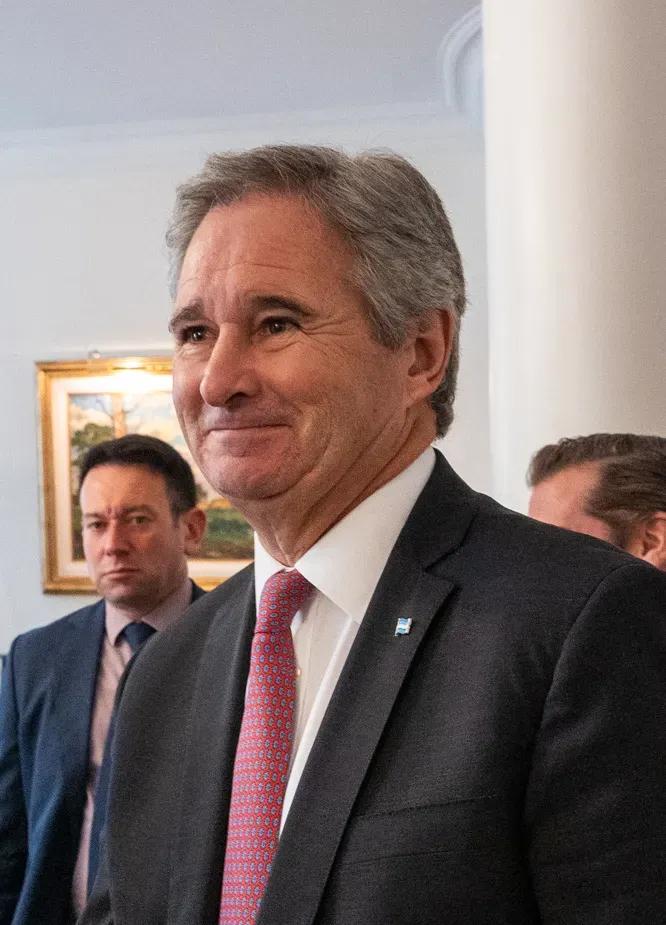In a context of growing economic and political uncertainty, Pablo Quirno has been appointed as the new chancellor of Argentina. This trained economist and current Secretary of Finance faces the challenge of leading foreign policy at a critical moment for the country, marked by inflation and the search for investments. The central question is: can Quirno, with his experience and closeness to the current Minister of Economy, help improve Argentina's international image and attract capital?
🌍 Current Outlook
Since his appointment, Quirno has shown a clear intention to consolidate confidence in international markets. With an inflation rate exceeding 100% annually and an external debt that limits the government's maneuvering capacity, his role is crucial. Expectations are high, especially among investors watching closely how the country's foreign relations develop. Although his training at the University of Pennsylvania grants him a technical profile, Argentine foreign policy requires more than economic knowledge; it demands a clear and effective strategy.
Since Quirno's arrival at the Ministry, various initiatives have emerged aimed at reorienting trade relations, especially with countries in the European Union and the United States. However, internal political fragmentation and a tense social landscape present significant obstacles. The new chancellor will need to balance the expectations of the business sector with social demands that sometimes oppose economic liberalization policies.
🌐 International Comparison
By observing the situation in other countries that have faced similar challenges, successful strategies can be identified. For example, Chile during the 1990s managed to stabilize its economy and attract foreign investments through trade agreements and a policy of openness to the world. The implementation of a solid institutional framework and the promotion of trust in the markets were essential to its success.
In contrast, Venezuela has experienced an economic collapse despite having abundant natural resources, illustrating that the quality of institutions and the management of foreign policy are crucial. The lack of trust in the government and corruption have driven away investors, leading to a prolonged crisis.
Quirno's experience in the financial sector could be a valuable asset for Argentina, but implementing structural reforms and creating a conducive environment for investment are tasks that require collaboration and long-term political commitment.
⚖️ Social and Political Implications
Quirno's appointment has significant implications in the political and social context of Argentina. His focus on the economy could lead to tensions among different sectors of society, especially if the measures he implements impact the most vulnerable groups. History has shown that in times of crisis, economic decisions can trigger protests and social discontent.
Moreover, the relationship between the new chancellor and other political actors will be crucial. Quirno's ability to articulate a foreign policy that takes into account both foreign capital needs and social concerns will be a determining factor for his success. The lack of internal consensus could limit his capacity to implement an ambitious agenda.
📈 Future Projections
The future of Argentine foreign policy under Pablo Quirno's leadership will depend on his ability to manage both internal and external expectations. The quest for investments will be a constant challenge, and the new chancellor must demonstrate that Argentina is ready to be a reliable actor on the international stage.
If Quirno manages to establish a constructive dialogue with the various sectors of society and promotes a strong institutional framework, it could be possible to reverse the negative perception that some have of the country. However, this will require time, commitment, and a clear vision that transcends short-term boundaries.
In conclusion, Pablo Quirno's appointment as chancellor is a significant step in a context marked by uncertainty. His trajectory and economic knowledge are undoubtedly valuable, but the real challenge lies in his ability to articulate a foreign policy that encompasses all interests at play. Argentina does not need more patches. It needs direction.

Comments